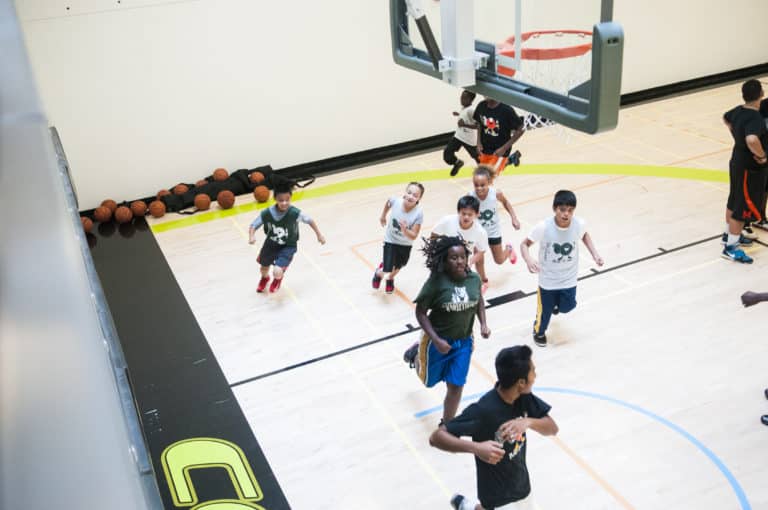
Image by Centennial College/Flickr, Attribution.
To Foster Grit in Our Kids and Ourselves
I’ve never been great at doing things I’m not great at. Or at least that’s the story I tell about myself.
I was reminded of this while sitting around a friend’s dining room table late Saturday night, snacking on cherries and sipping on wine. We were talking about the messy prospect of raising a human being, otherwise known as parenting, and wondering aloud how you foster grit in your kids. In particular, how do you encourage children to work hard at mastering skills that, at first, evade them? Not so that they get into the perfect college, mind you, but so that they have the transcendent and truly unique feeling that comes with having earned mastery in something that doesn’t come naturally.
One friend reflected back on her own childhood and said, “I think I learned to do that through improvising in jazz band. Music was such a huge part of the culture of my family and improvisation was a time to take risks. Sometimes it sounded amazing and sometimes it sounded terrible, and either way you just kept making music. You moved on.”
Another said, “My parents were so strict that there was no room for failure. It means that you either had to be perfect at something, or not do it at all.”

When I thought back to my own memories of flailing, math immediately came to mind. In fifth grade I decided that I wasn’t good at it, and, from there on out, I felt a sense of almost paralyzing helplessness anytime I sat down to do my math homework or take a math test. My big brother would try to help me, on occasion, and usually end up making me feel even less equipped. Somehow the answers magically appeared in his head. He would try to trace back how he arrived at the end, but often found himself at a loss.
When I peel back the layers of my own insecurity, there’s something peculiar underneath. I really liked writing proofs in geometry. Duh — they involved words! I also dug sociological statistics and astronomy in college. In stats, it felt like I was learning numbers, but, more than that, I was learning how to speak a new language about people. In astronomy, I was being pushed to think at a scale that I found flabbergasting. The physics that I learned in that context seemed like a means to having my mind blown.
In my marriage, I’m the CFO, the chief financial officer, while my husband is the CDO, the chief domestic officer. I handle our taxes. I pay our bills. I invest in our SEP IRAs. I care about how our values align with our money. We’re freelancers, so there’s plenty of insecurity to tolerate, but I want to make sure that we’re safe should the totally unexpected happen. So there, again, it appears I have some facility with numbers, even if I had a hell of a time passing Algebra II.
So maybe one of the problems is not an absence of grit, but the stubbornness with which we cling to our first impressions of our own gifts (or lack thereof). I got good at certain applications of math, the ones that had the most meaning for me — all while maintaining my original story about my pathetic lack of skills or interest.
What other first impressions am I clinging to about myself that, when examined closely, turn out to be false? Could I actually be a great cook? (Don’t answer this one, John. It’s a hypothetical.) Or might I have a beautiful singing voice?
The aim isn’t to teach our kids that they’re gifted at everything; the aim is to teach them to delay their judgment, to give themselves time to find the places and ways that have meaning for them, to make room for surprise and evolution in who they become. If we can encourage them to play, to take risks, to experiment, to take themselves less seriously, they will have a better chance of knowing when it’s time to hone in on something that has real heat for them.

And while we’re raising our kids with this intention, of course, we could do with raising ourselves this way, too. Kids are expected to try a range of things, but adulthood can often feel like an exponential narrowing. We do what we’re good at more and more of the time and call it expertise, while neglecting to explore all the underdeveloped parts of ourselves, the outdated stories, the unspoken creative dreams.
We don’t want to embarrass ourselves. We don’t think we have time to be messy. But flailing can actually be really fun. At the very least, it’s refreshing. It puts us in touch with our empathy for the universal human condition of being new and confused and determined. In that way, it’s not about us at all. And isn’t that freeing?
